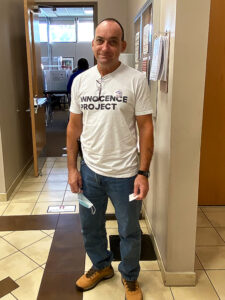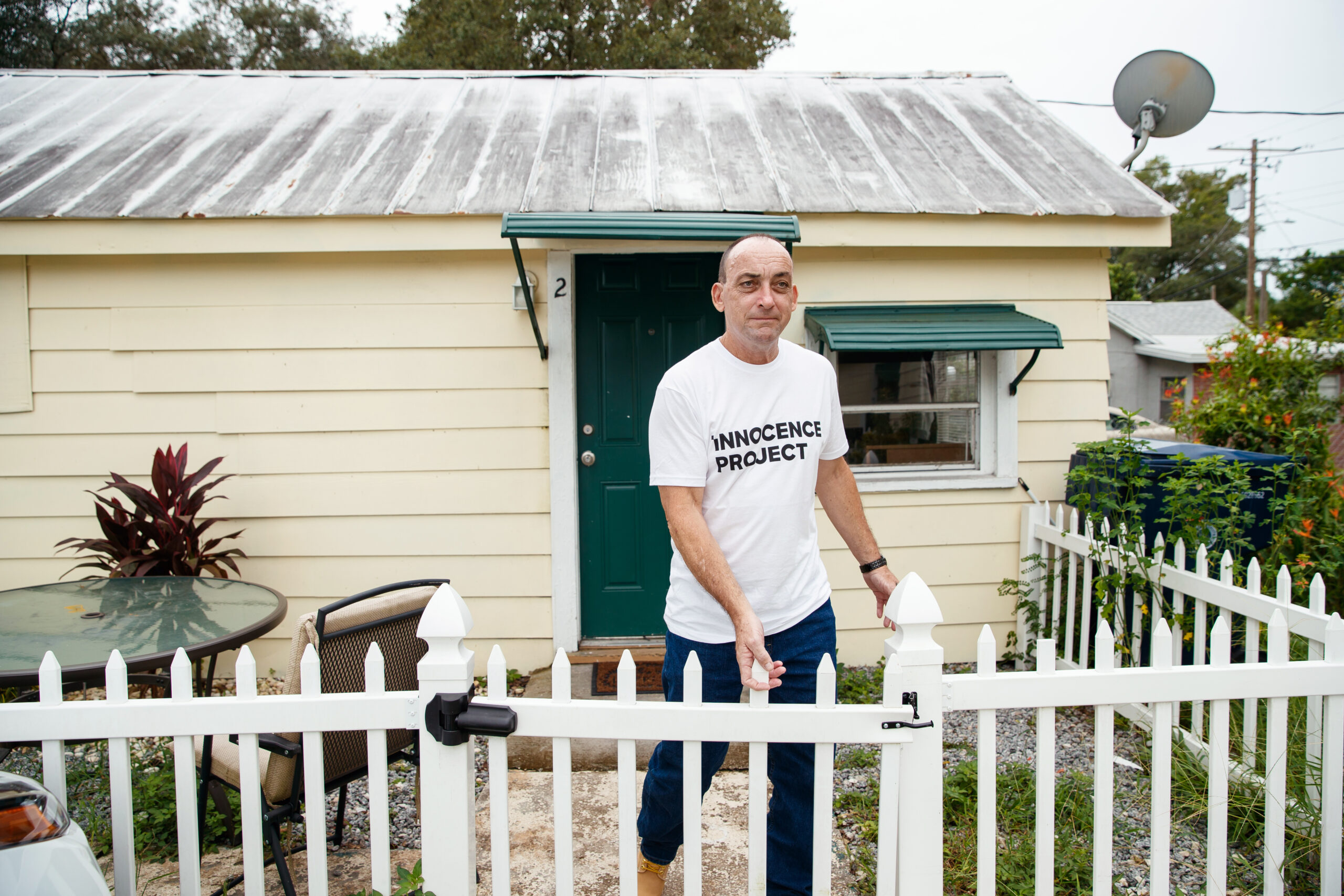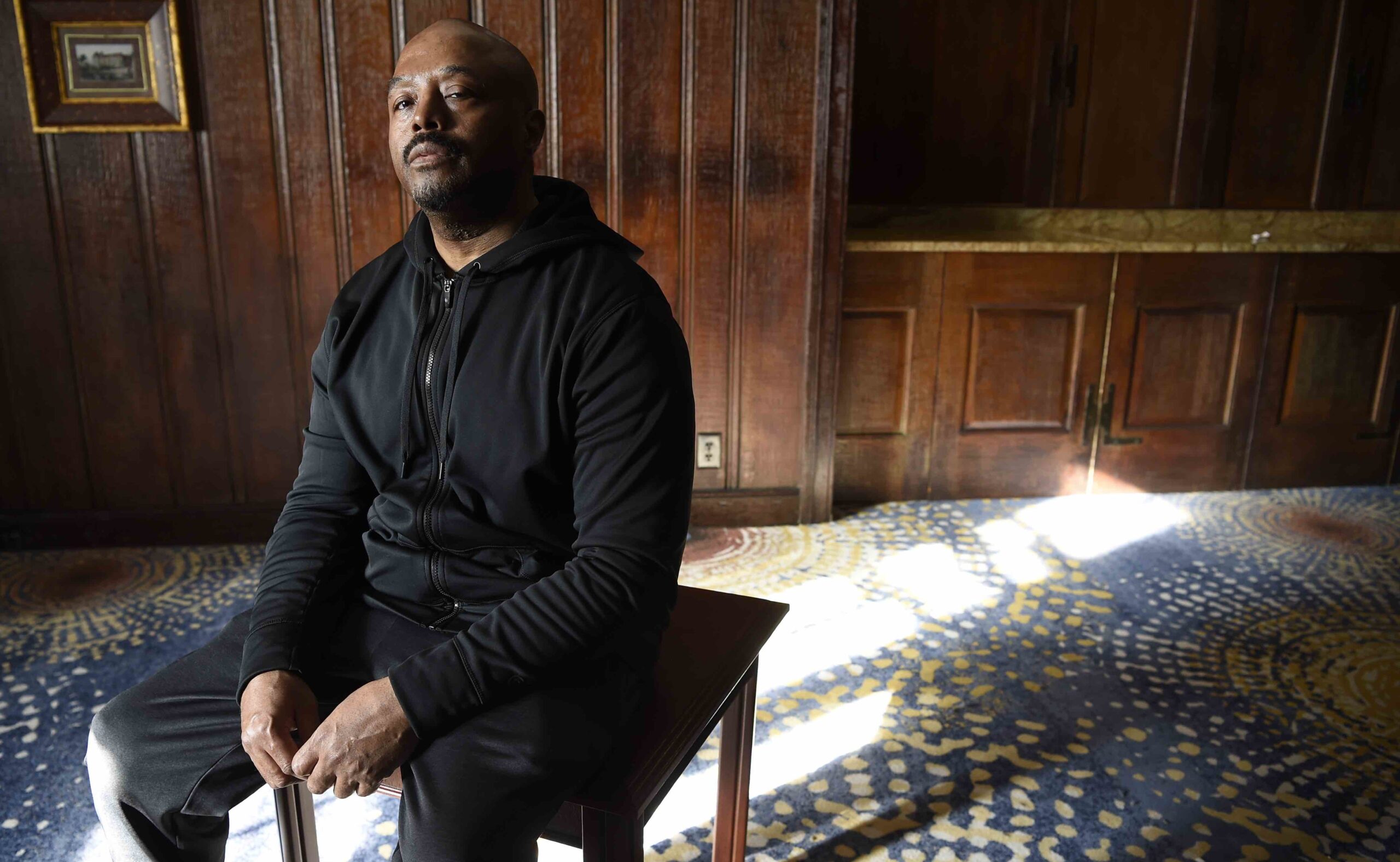Why This Exoneree and First-Time Voter Wants You to Get to the Polls
“I want people to understand that this is serious.u0022
10.26.20 By Daniele Selby
Robert DuBoise woke up early on the morning of Oct. 19, so he could get to his polling station in Hillsborough County, Florida, as soon as it opened at 7 a.m.
“I voted first thing in the morning, I made sure. I didn’t want to hesitate for a minute,” said Mr. DuBoise. “It was the first day I voted ever in my life and it felt really good.”
Mr. DuBoise had just reached voting age, 18, when he was arrested for the rape and murder of a 19-year-old woman in Tampa, Florida, in 1983. He maintained his innocence, but was convicted based on the testimony of an unreliable jailhouse informant and the use of bite mark analysis, a type of pseudoscience that has been discredited. The jury that convicted him recommended a life sentence, but the judge chose to sentence him to death. Mr. DuBoise, then still a young man, spent three years on death row before the Florida Supreme Court vacated his death sentence and re-sentenced him to life.
For over 36 years, Mr. DuBoise languished in prison for a crime he did not commit, until this year, when DNA testing of crime scene evidence that was previously thought to have been destroyed excluded him as the attacker. He was released in August and officially exonerated on Sept. 14.

Robert DuBoise after casting his ballot in 2020 General Election in Florida. (Image: Courtesy of Robert DuBoise)
“My priority in those first couple of weeks after I came out [of prison] was to get my driver’s license and register to vote. I did both at the same time within maybe 10 or 11 days of being free,” he said.
Growing up, Mr. DuBoise bonded with his father by watching the news and discussing politics. So the importance of voting was never lost on him and he was looking forward to exercising his right, before it was taken from him by wrongful incarceration. But his experience navigating the legal system and fighting to prove his innocence has given him a unique perspective on just how much voting in elections — particularly local elections — can affect people’s lives.
While many voters are galvanized to vote in presidential elections, Mr. DuBoise said it’s actually the vote he casts in his local elections that he believes will have the most impact.
“A lot of people don’t realize that you get to vote for your local prosecutor, and I want people to understand that this is serious,” Mr. DuBoise said. Currently, prosecutors are elected in 45 states, including Florida.
Prosecutors wield enormous power to both convict someone and to prevent wrongful conviction. They have wide discretion within the system to bring charges against someone and to choose to drop charges.
“I want people to understand that this is serious.”
“If prosecutors thoroughly scrutinize cases the police bring them and conclude that there’s not compelling or reliable evidence, then they have near-absolute authority to drop the charges — and prevent wrongful convictions before they occur,” said Nina Morrison, Senior Litigation Counsel at the Innocence Project.
“And we’ve seen the incredible powers that prosecutors have to undo wrongful convictions over the last 28 years at the Innocence Project,” she added.
It’s prosecutors that decide who will be prosecuted, what to charge them with, and what kinds of evidence they’ll offer in court to convict a person. Prosecutors also oversee the plea bargaining process. The Justice Department estimates as many as 95% of cases end in a guilty plea — meaning they never actually go to trial. But not everyone who takes a guilty plea is actually guilty. Nearly 1 in 5 known exonerees pleaded guilty to crimes they didn’t commit, according to the National Registry of Exonerations.


Dear Robert,
I’m so thrilled to hear of your exoneration, may God Bless You!!! I did not know that our state prosecutors are elected…..I was aware of the judges and others. While I do make it a point to vote in all Presidential elections, like many people, I never bother to vote for the state and local elections, but you have just convinced me of how important it is.
I am horrified to learn of how many people are wrongfully convicted of crimes they did not commit, every day in this country, it is a horror, shameful, a disgrace. So, I am a supporter of the Innocence Project (IP) and I believe in this organization wholeheartedly. I learned of IP from a documentary I caught on Netflix I think, only about a year or so ago. The documentary was like a series that presented the cases of different people who were wrongfully convicted, I was shocked, completed shocked and amazed that this could occur as often as it does, in a country such as this!!! So, I watched the show on Netflix and that is how I was introduced to the IP, otherwise, I would have never known. What a shame, I’m sure most average people like myself remain unaware of what happens everyday in this wonderful country of ours….that is, in terms of prosecuting innocent people and stealing their lives from them!!! I had no idea until I saw this show on Netflix and I am in my fifties!!! What a shame, I know there are many hundreds of thousands of people out there like myself who are grossly unaware of the extent to which this occurs…its disgraceful!!! So, programs like the one I saw on Netflix are so important to continue, to make people aware of different issues, to raise awareness, and get people involved. So, now I have a new interest, that is, in the IP, I’m just sad that it took so long to find out about it. But, I’m grateful for organizations like these, that address the things that are wrong in our culture….the IP helps so many people, so May God Bless Them as well!
And based on what you said here, I am also going to get more involved in learning about my local elected officials and I will get out there to vote for the local elections…I’m so sorry, I haven’t done it sooner in my life, but I am going to do it now!!! Anyhow, I am thrilled for you, for your freedom, go and enjoy every minute of it and May God Bless You.